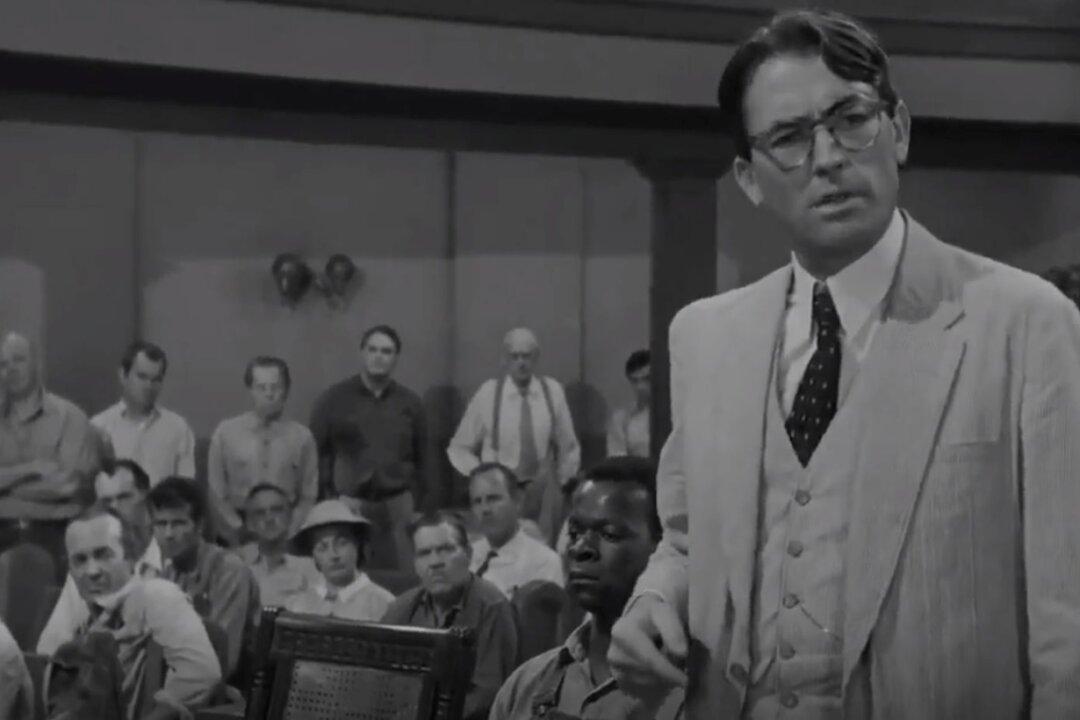Directed by Robert Mulligan (“Summer of ’42,” 1971; “The Other,” 1972), “To Kill a Mockingbird” is a 1962 film based on a 1960 book of the same name, written by award-winning American author Harper Lee. Elements in the book and film parallel aspects of Lee’s younger years, although we now know that the book is more fiction than autobiographical account. But irrespective of how close the novel is to real-life events, the tale still shows the value of standing up to injustice.
The film opens in the small, fictional town of Maycomb, Alabama. A lawyer of goodwill, Atticus Finch (Gregory Peck) is going about his morning routine when a local farmer, Walter Cunningham (Crahan Denton), shows up to deliver a sack of chestnuts to him, albeit clandestinely.






